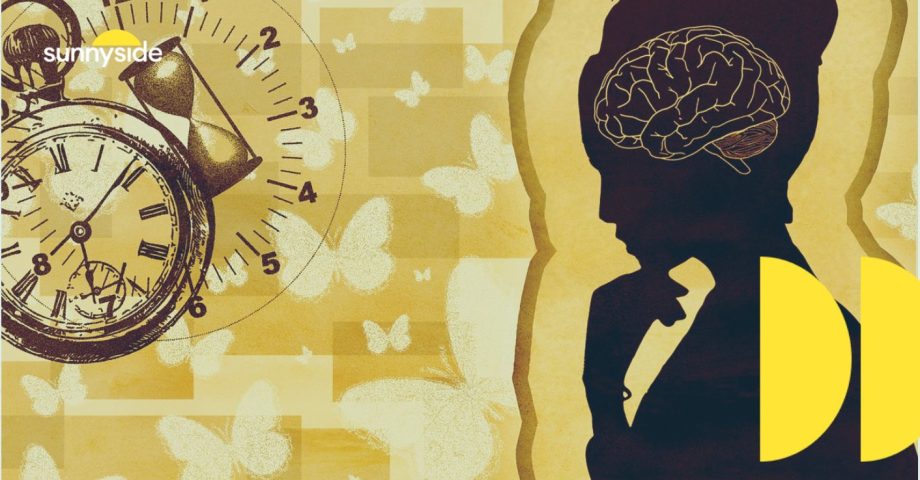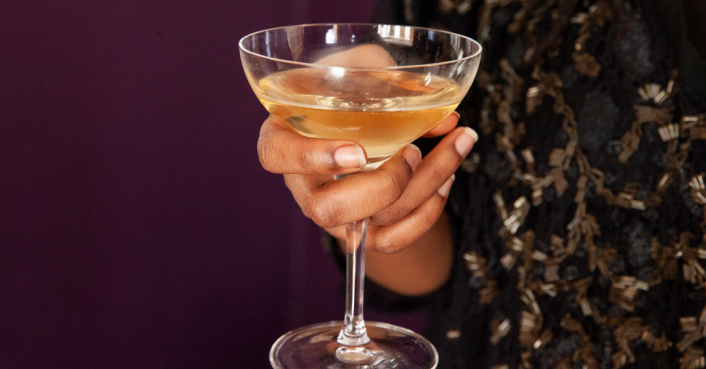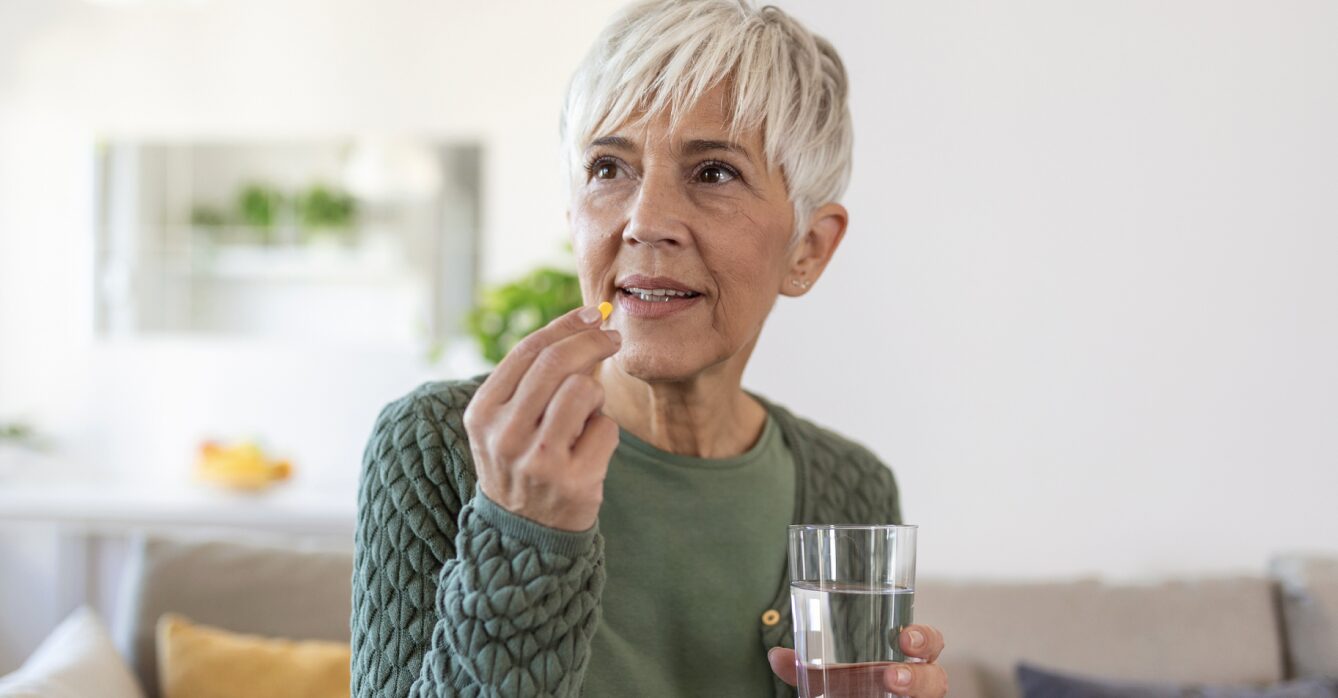Last Updated on July 13, 2023
It’s not easy to cut back or stop drinking alcohol for people with mental health conditions. But with ADHD, it gets even harder.
Currently, anywhere from 140 to 366 million adults worldwide are managing ADHD. And this neurodevelopmental disorder often comes with symptoms like inattention, hyperactivity, and impulsivity — behaviors that alcohol also affects.
In this article, we’ll dive into ADHD drinking by answering your top 20 questions and talk about why it’s so hard to quit, with proven strategies that help.
ADHD and Alcohol Use
Alcohol affects the brain and nervous system in ways that exasperate most ADHD symptoms. For example, impulsivity, distractibility, and difficulty with self-regulation are some of the most common ADHD symptoms, and these traits are going to make watching how much you drink and the desire to stop very difficult.
Katherine Bonham, LPCC, LADC, a mental health and substance use specialist, added that,
“People with ADHD may experience increased restlessness or the inability to sit still, difficulty with concentration and focus, heightened anxiety, and it can worsen impulsive behavior. This can even happen for someone who is taking medications that are helping with symptoms.”
How Exactly Does Alcohol Affect ADHD Symptoms?
With ADHD, symptoms can easily worsen with alcohol because it affects already-present issues by:
1) Affecting the prefrontal cortex; the part of the brain responsible for impulse control, attention, and decision-making.
2) Reducing inhibitions and impairing judgment, amplifying symptoms.
3) Impairing cognitive function and disrupting attention and concentration.
4) Intensifying mood swings and emotional control, leading to heightened emotional reactivity.
5) Disrupting sleep, which worsens inattention, mood swings, and hyperactivity.
6) Impacting dopamine levels, which are often already imbalanced, alleviating low dopamine initially, and also making reward and motivation more difficult to regulate.
Naturally, the effects of alcohol and symptoms already present in ADHD can increase the risk of developing alcohol use disorders. ADHD and binge drinking, for example, often go hand in hand, with 42% of people with ADHD binging every time they drink.
Katherine Bonham went on to say,
“ Of course, not everyone with ADHD will abuse alcohol, and not everyone who abuses alcohol has ADHD, but the correlation here is pretty clear.
ADHD can make sustaining dopamine levels in the brain difficult and consuming alcohol gives the brain a big boost of dopamine, which makes the ‘ADHD brain’ pretty happy. That connection, which is often subconscious, can lead to a higher frequency and volume of alcohol consumption.”
Tips for Mindful Drinking and ADHD
1) Make a structured routine: A well-defined schedule is usually key for people with ADHD. It helps to manage time and activities, reducing the likelihood of impulsive decisions, like excessive drinking. Plus, a routine that includes healthy habits can reduce stress and improve overall physical health, making cravings less likely.
2) Create alcohol-free coping responses: Finding healthy outlets for managing stress and emotions, like exercise, hobbies, or mindfulness practices, can help to stop relying on alcohol as a coping mechanism. Turning to a hobby like drawing or painting, for example, can keep you focused on the task at hand and offer a creative outlet for expressing your emotions.
3) Get support from professionals and support groups: Professionals experienced in ADHD and substance use can offer personalized guidance and support. Support groups can also create a sense of community and understanding.
4) Practice mindfulness: Being mindful of triggers, emotions, and patterns related to alcohol use can empower you to make conscious choices and develop healthier habits. Of course, it’s not a habit that develops overnight, but with regular practice, it helps. That’s where apps like Sunnyside come into play, with reminders that help you stay observant and track your behaviors.
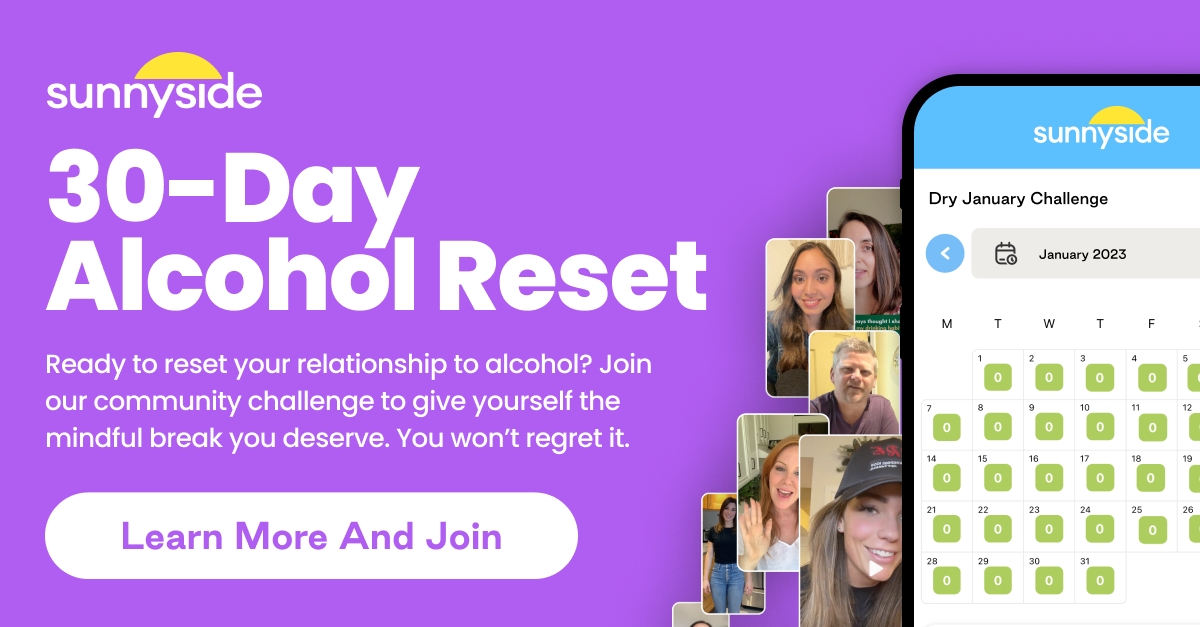
Answering The Most Common Questions about ADHD and Alcohol Use
We searched the top questions people had about ADHD and alcohol, and here they are in bite-sized answers:
1) Can people with ADHD drink alcohol?
Yes, but it’s important to be mindful of the risks and complications.
2) Is it safe to mix ADHD medication with alcohol?
No, it’s not recommended. Alcohol can interfere with its effectiveness and create unpredictable and dangerous interactions.
3) Does alcohol worsen ADHD symptoms?
Yes, alcohol can exacerbate symptoms of impulsivity and inattention.
4) Why is it harder for people with ADHD to stop drinking or cut back?
People with ADHD often struggle with self-regulation and impulsivity, which can make it even harder to control how much they drink.
5) How does impulsivity impact ADHD alcohol use?
Impulsivity makes it more difficult to think before acting, so stopping to think about how much you’re drinking becomes even harder.
6) Can alcohol use worsen other conditions commonly seen with ADHD?
Yes, alcohol use can exacerbate the symptoms of comorbid conditions commonly associated with ADHD, like anxiety disorders, depression, and substance use disorders.
7) Are there specific risks associated with alcohol use and ADHD?
Yes, people with ADHD may be at a higher risk of developing alcohol use disorders and worsening ADHD symptoms.
8) How do ADHD medication and alcohol mix?
Alcohol can interfere with the intended effects of ADHD medication, reducing its efficacy and potentially increasing ADHD symptoms.
9) How do Ritalin and alcohol interact?
Ritalin is a stimulant and often prescribed to treat ADHD, but alcohol is a depressant, which can confuse the nervous system and brain. This mix can create symptoms like an increased heart rate, dizziness, nervousness, and riskier behavior, and put a strain on the heart.
10) Are there any specific types of alcohol that are better or worse for people with ADHD?
There aren’t any specific types of alcohol that are better or worse for people with ADHD. Overall, it’s about moderation and being aware of ADHD alcohol sensitivity and reactions.
11) What strategies can help people with ADHD reduce alcohol consumption?
Creating clear goals, seeking support, developing healthy coping mechanisms, and being mindful of triggers and patterns.
12) How can mindfulness techniques help people with ADHD in managing alcohol use?
Whether you have ADHD or not, mindfulness can help you become more aware of your thoughts, emotions, and cravings, allowing you to make conscious choices and better regulate your alcohol consumption.
13) Are there any alternative therapies or treatments that can help people who drink with ADHD?
Yes, cognitive-behavioral therapy (CBT), dialectical behavior therapy (DBT), and motivational interviewing can help people with ADHD reduce their consumption and develop healthier habits.
14) How can support groups or counseling help?
Support groups offer a safe space to share experiences, gain support, and learn coping strategies from others facing similar challenges. Individualized counseling can help tackle more personal issues and let you gain coping tools specifically for your symptoms and background.
15) Are there any supplements or medications that can help manage alcohol use in people with ADHD?
While there is no specific medication approved for treating ADHD and alcohol abuse, certain medications, such as naltrexone, might be prescribed off-label to help reduce cravings.
16) How can friends and family support people with ADHD to manage alcohol use?
It’s so important for friends and family to offer a compassionate, understanding, and encouraging attitude to anyone struggling with their alcohol intake. Emotional support is one of the most important factors that leads to better mental health and improved self-regulation.
17) Are there specific warning signs or red flags to watch for regarding alcohol use in people with ADHD?
Yes, warning signs might be an inability to cut back, increased tolerance, neglecting responsibilities, and strained relationships.
18) What are the potential long-term consequences of alcohol use for people with ADHD?
Long-term consequences could be an increased risk of developing alcohol use disorders, impaired cognitive function, liver damage, and of course, negative impacts on mental health.
19) Can therapy or counseling help people with ADHD address underlying issues contributing to alcohol use?
Yes, therapy or counseling is the best way to address underlying issues contributing to alcohol use. Even though holistic approaches and healthy lifestyle habits help, a professional can get to the root issue and offer new perspectives, added suppose, and individualized coping tools. Therapy is also great for goal-setting and accountability, which is key when changing hard-set habits.
20) Where can people with ADHD find professional help for alcohol-related concerns?
Addiction specialists, therapists, or counselors experienced in treating co-occurring ADHD and substance use disorders are a great fit. On top of that, communities designed for offering support, like Sunnyside, and support groups specifically for people with ADHD for an essential sense of community and understanding.
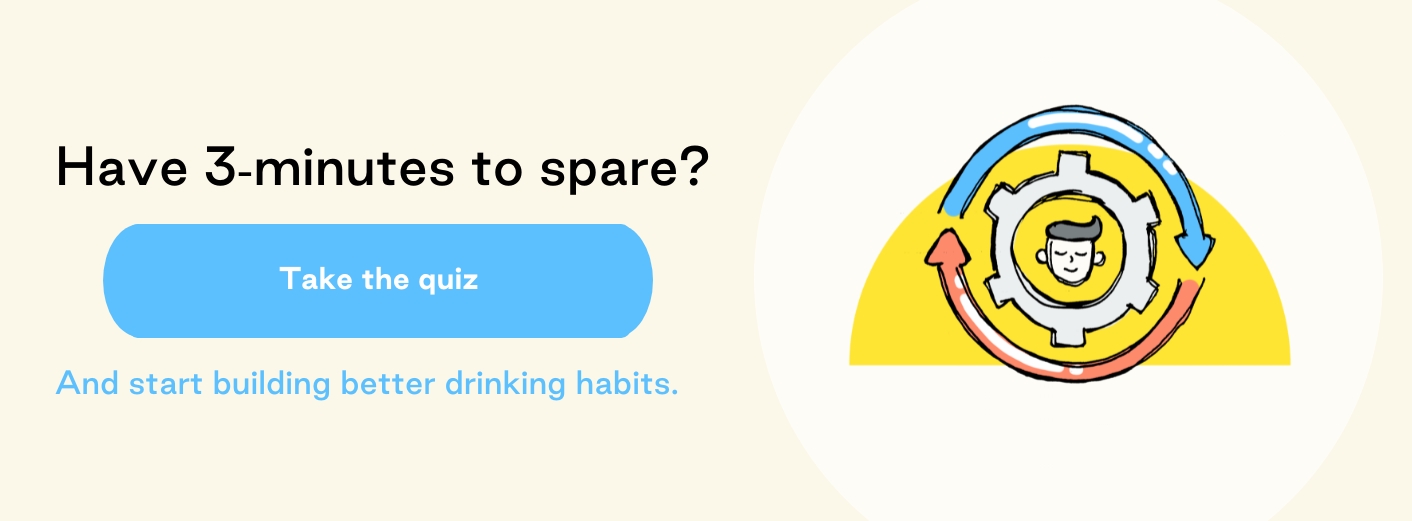
How Sunnyside Can Help
Mixing ADHD and alcohol comes with a specific set of risks and precautions that, thankfully, can be managed. Following the tips for structure, routine, finding support, and working on new coping skills all help to reduce cravings and change unconscious drinking habits.
With Sunnyside, you can set realistic goals, create a routine, get personalized support for your needs, and find a whole community ready to help. All tactics that have been proven to
Finally, mental health and substance abuse specialist Bonham stated, “For anyone looking to help create more mindful habits with alcohol, I definitely recommend trying out an app like Sunnyside to plan and track alcohol consumption and start building better habits.”
So take the 3-minute quiz to give it a try to create your own tailored plan for healthier living.

